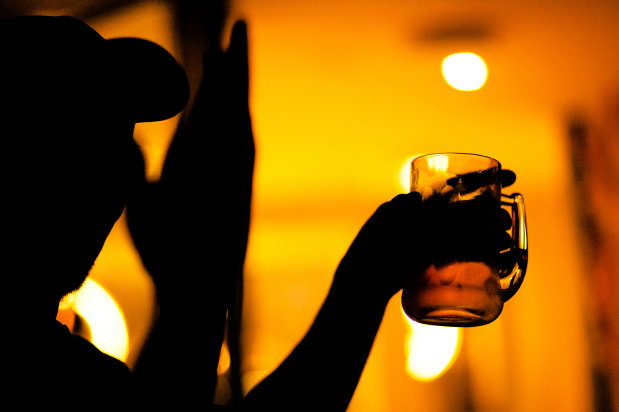Alcohol consumption that consistently and persistently goes past the legal or logical limit can be considered a problem, both for the drinker and for those around the drinker. If you are often described as having had “one too many,” this can begin to indicate a problem where a drinker continues to drink past the point where they can emotionally and physically function.
When consequences from alcohol consumption begin to accrue and the drinker does not see the problem, this can indicate they are becoming an alcoholic or problem drinker. Problem drinking means the drinker is going beyond a marker recognized as a limit. This can be a legal, social or personal limit. When the limit or line is crossed often, this indicates problem drinking.
Common Symptoms of Problematic Drinking
Tolerance: Tolerance occurs when a user drinks for some time and develops the need to drink more to gain the same effect or level of intoxication. This means that the drinker increases the amount they drink or drinks more often. Not everyone who drinks will experience alcohol tolerance, but it is an early indicator that alcohol is beginning to gain a foothold on the user.
Withdrawal: Because the drinker has developed some tolerance and has begun to drink more frequently or drink larger quantities, they may experience withdrawal symptoms when alcohol is removed from their system or they attempt to stop drinking. This means that the drinker is experiencing symptoms that were not present while alcohol consumption continued.
Withdrawal symptoms vary according to the drinker. In some cases, as with very long-term, heavy drinkers, withdrawal symptoms can be fatal. Drinkers who have been drinking over long periods of time may have physical or emotional symptoms when they stop. Heart complications and lung problems are indicators of severe withdrawal symptoms and should receive immediate medical attention. If there is any indication of seizure activity or severe tremors, get medical help right away.
Some of the symptoms to watch out for that may need medical attention include:
- shaking or trembling hands
- nervousness or anxiety
- hallucinations
- rapid heartbeat
- fever
- tremors
- seizures
Most often, withdrawal from alcohol may cause depression, anxiety and lack of energy for the user. Additional symptoms may occur, some psychological and some physical.
Substitution: Recurring thoughts of drinking leads many drinkers back to alcohol or to a substitute. Thus, they then begin the cycle of addiction again, but with a new substance.
Craving: Recurring thoughts about alcohol are called cravings. These may be persistent, ongoing desires that begin with thoughts and become physical demands for alcohol. Drinkers may have emotional responses to thoughts about alcohol. These can be brought on by triggers, which are emotional reminders about alcohol and drinking.
Cravings for a return to alcohol use are signs of addiction (called alcoholism). Some alcoholics may be able to withstand cravings, but most will eventually surrender to cravings and return to active use.
Triggers: These are emotional reminders of places, times of day, or special items (or even people) that are part of drinking. Triggers might include driving by a favorite liquor store or bar that brings an emotional response that triggers their craving for alcohol. An alcoholic may have a ritual at a certain time of day that they get triggered by, such as Happy Hour or stopping to buy alcohol after work or drinking at dinner time.
Identifying triggers is an important part of recognizing problem alcohol use.
Motivations to Drink
Drinking can be a social lubricant. For those who are social drinkers, stopping is not an issue. Nor do they consistently drink to the point of being drunk. An occasional bender does not qualify as problem drinking.
Sometimes the reasons people drink can indicate an underlying problem. If alcohol gives you something you cannot get any other way, this may be a sign that drinking is a problem for you. If you drink to become confident in uncomfortable situations, that is a symptom. If you drink to let go of stress, pain, pressure or to relax, that may indicate a problem. Most people do not need alcohol or drugs to do these things.
Working through stress and anxiety are more appropriate ways to deal with them. Drinking to relieve anxiety or to balance emotions is a sign of problem drinking. Drinking for escape from emotions may also be a warning sign. If you do not have simple coping mechanisms for dealing with stress, anxiety, fears or other concerns, it is best to find therapy or structured support program for learning them. Alcohol is a temporary escape, not a coping skill, but coping skills can be learned.
Why Can’t I Stop Drinking?
Some drinkers will begin to recognize their addictive use of alcohol, but deny that they are unable to quit. Or they may quit for a time and return to use that is worse than before.
The cycle of use and relapse to use again is common in alcoholism. Once the addiction has taken hold, the drinker will not be able to drink randomly or occasionally. They will often try, but cannot do so without falling back into problem drinking. The alcoholic has crossed the line of enjoying their drinking into being compelled to drink, even against their will.
There can be serious health, social and lifestyle issues that come with chronic or problem drinking. Some of these alcohol-related issues may include:
- legal problems, such as drunk driving arrests and convictions
- loss of employment due to hangovers
- marital and relational problems caused by alcohol
- cirrhosis or other medical factor
- other physical damage caused by alcohol
Recognizing Addictive Behaviors
As alcohol takes over the drinker’s life, there are behaviors that begin to occur. Some of these are in direct opposition to the drinker’s normal ways of behaving, and include:
- may begin to lie, steal or otherwise display dishonest behavior patterns to cover up for drinking
- may sell personal belongings to obtain money for alcohol.
- may begin to miss work or important appointments because they are too drunk or hungover
- may stop paying bills on time or use grocery money to buy alcohol
- Family and friends begin to observe strange behavior when the drinker is under the influence, and make comments about this to the drinker or to someone close to them
- begins to isolate from family and friends or spends time with others who are drinking.
- may have unusual physical or emotional symptoms that were not present before.
- patterns of sleep, eating and other regular habits can be altered dramatically
Who Becomes a Problem Drinker?
Some people can drink socially and walk away from alcohol, sometimes completely, when a good reason exists. This may not be true for those who have a problem with alcohol. Even those who may not yet be considered alcoholic cannot completely refrain from drinking.
Even though they are showing symptoms of problem drinking, they are not willing to stop drinking altogether. They will give many reasons for not stopping. Alcohol is socially acceptable in most settings. Nearly every social occasion allows for or embraces alcohol as part of celebrations with family and friends. It is served in nearly every environment that draws people together, such as sporting events, social engagements, weddings and family situations. Many business gatherings allow alcohol consumption as well. It is hard to avoid drinking altogether, and most people seem able to drink without a problem.
However, problem drinkers may be those who exhibit the inability to stop when they would or should. Alcohol lowers inhibitions. Social manners that are often obeyed may become disregarded or broken. Drinkers may create disruptions in social events by loud, aggressive or overly sentimental exhibitions. There might be emotional outbursts or arguments, perhaps even fighting may occur. They become too tipsy to make sound judgments and create scenes with co-workers or family friends. They may even become overly friendly with members of the opposite sex and start trouble in marriages, including their own.
If you or someone you know is seeking help from alcohol addiction, please visit our directory of treatment centers or call 866-606-0182 to start the path to recovery today.








